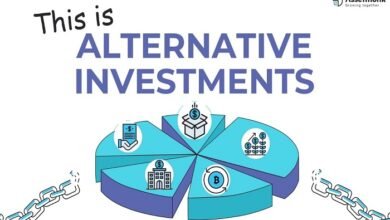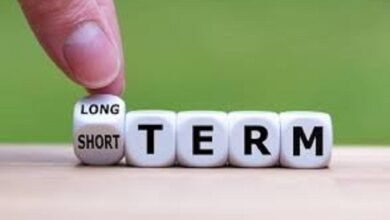Burkina Faso Turf: A Deep Dive into the Racing and Agricultural Landscape

Burkina Faso, a landlocked country in West Africa, is known for its rich cultural heritage, agricultural dominance, and emerging sports scene. One of the key areas gaining traction is the “Burkina Faso Turf,” a sector that blends traditional agricultural practices with the excitement of horse racing. Over the years, Burkina Faso has seen an increasing interest in turf-related activities, which play a role in both entertainment and economic growth. Understanding the evolution of “Burkina Faso Turf” is essential for anyone looking to explore this vibrant sector further.
The Growing Popularity of Horse Racing in Burkina Faso
Horse racing, also known as turf racing, has become an exciting addition to Burkina Faso’s entertainment scene. In recent years, the country has witnessed a surge in the number of local and international horse racing events. “messiturf10” is now a recognized term in the sports community, as enthusiasts flock to tracks for both professional races and amateur competitions. This growing interest not only brings excitement to the country but also opens up new opportunities for local breeders and jockeys, boosting both the sports and agricultural industries.
Agricultural Significance of “Burkina Faso Turf”
The term “Burkina Faso Turf” isn’t just associated with racing but also reflects the agricultural practices tied to the land. In rural Burkina Faso, land is cultivated for crops, but also for grazing pastures essential for horses, livestock, and even certain crops. The synergy between agriculture and the turf industry is pivotal, as horse breeders require fertile land for grazing and training. This relationship highlights the importance of agricultural land management, particularly in the context of the “Burkina Faso Turf,” where the nation’s natural resources support both the agricultural and equine industries.
Key Players in Burkina Faso Turf: Jockeys and Trainers
In the world of “Burkina Faso Turf,” jockeys and trainers play a critical role in shaping the sport. Local jockeys, often from agricultural backgrounds, are transitioning into professional roles as they develop their skills. Trainers, on the other hand, manage the horses, ensuring that they are fit for races and well-prepared for competition. This vibrant community continues to grow, with both seasoned professionals and emerging talents contributing to the development of the sport. The synergy between experienced trainers and novice jockeys has greatly contributed to the success of “Burkina Faso Turf.”
The Role of Horse Breeding in Burkina Faso Turf
Horse breeding is an essential component of “Burkina Faso Turf.” As demand for competitive horses grows, breeders in Burkina Faso are focusing on improving the quality of their stock. Local farms, often located on fertile agricultural land, are ideal for raising strong, healthy horses. Breeders are working to develop horse breeds that are not only suited for racing but also adaptable to the local environment. This focus on breeding high-quality horses helps strengthen the competitive edge of “Burkina Faso Turf” and allows for more successful races and equine achievements.
Turf Events and Festivals: A Cultural Celebration
Beyond the competitive side of “Burkina Faso Turf,” many events and festivals are centered around horse racing. These turf festivals serve as significant cultural celebrations, drawing in large crowds and providing a platform for local communities to showcase their heritage. Horse races often take place during national holidays and festivals, adding an element of excitement and tradition. The “Burkina Faso Turf” festivals are not just about competition but are also a way for the country to display its equine culture, attracting tourists and horse enthusiasts from around the world.
The Economic Impact of “Burkina Faso Turf”
The economic impact of the “Burkina Faso Turf” industry extends beyond just the entertainment value. With the growth of horse racing and breeding, the local economy benefits through job creation in agriculture, training, event management, and tourism. Local farmers who provide feed and pasture for horses are seeing a rise in demand for their products. Similarly, jockeys, trainers, event coordinators, and hospitality businesses are experiencing growth due to the increasing popularity of turf events. As the “Burkina Faso Turf” sector continues to evolve, it has the potential to become a significant economic driver in the country.
Sustainability Challenges in the Burkina Faso Turf Industry
While the “Burkina Faso Turf” industry holds significant promise, it also faces sustainability challenges. Overgrazing, land degradation, and climate change pose threats to the agricultural land that supports both crops and horses. Ensuring that the land remains fertile and capable of sustaining horses, livestock, and crops is essential for the long-term growth of the turf industry. Many players in the “Burkina Faso Turf” sector are beginning to adopt sustainable practices such as rotational grazing and organic farming to preserve the land’s health. By integrating eco-friendly practices, Burkina Faso can ensure that its turf industry remains viable for years to come.
International Recognition of Burkina Faso Turf
While the “Burkina Faso Turf” industry is still in its developmental stages, its international recognition is growing. Horse racing enthusiasts and professionals are increasingly aware of the burgeoning scene in Burkina Faso, and international events are starting to take notice. This global interest in “Burkina Faso Turf” could open doors to partnerships with international racing organizations, sponsors, and investors. As the industry matures, the potential for Burkina Faso to host major international turf events becomes more plausible, putting the country on the map as a key player in the global equine community.
The Future of Burkina Faso Turf: Emerging Trends
The future of “Burkina Faso Turf” looks promising, with several emerging trends indicating growth in both the agricultural and sporting sectors. One key trend is the incorporation of modern technology into horse training and breeding. Advanced tools for monitoring horses’ health, nutrition, and performance are beginning to be used more widely in the country. Additionally, the growing interest in sustainable farming practices and eco-friendly turf management techniques is helping pave the way for a more resilient industry. The combination of technological advancements and a focus on sustainability ensures that “Burkina Faso Turf” will continue to evolve and thrive in the coming years.
Conclusion
The “Burkina Faso Turf” industry is a testament to the country’s potential in both agriculture and sports. With a growing passion for horse racing, a focus on sustainable land management, and a robust breeding program, Burkina Faso is positioning itself as a rising star in the global turf world. As the industry develops, it promises to bring new economic opportunities, cultural pride, and international recognition to the country. For those interested in exploring the future of “Burkina Faso Turf,” the possibilities are vast, and the growth potential is exciting.
FAQs
- What is “Burkina Faso Turf”?
“Burkina Faso Turf” refers to the horse racing and agricultural practices related to breeding, training, and racing horses in Burkina Faso. - How is agriculture connected to “Burkina Faso Turf”?
Agriculture plays a vital role in providing the land and resources necessary for raising horses and managing pastures for training and racing. - Are there international events held in Burkina Faso related to turf?
Yes, Burkina Faso is slowly gaining international attention for its horse racing events, and there is potential for more global recognition in the future. - What sustainable practices are being adopted in the Burkina Faso Turf industry?
Sustainable practices such as rotational grazing and organic farming are being implemented to ensure the land used for breeding and racing remains healthy. - How does “Burkina Faso Turf” impact the local economy?
The turf industry boosts the local economy by creating jobs in agriculture, racing, tourism, and hospitality, benefiting various sectors in the country.



